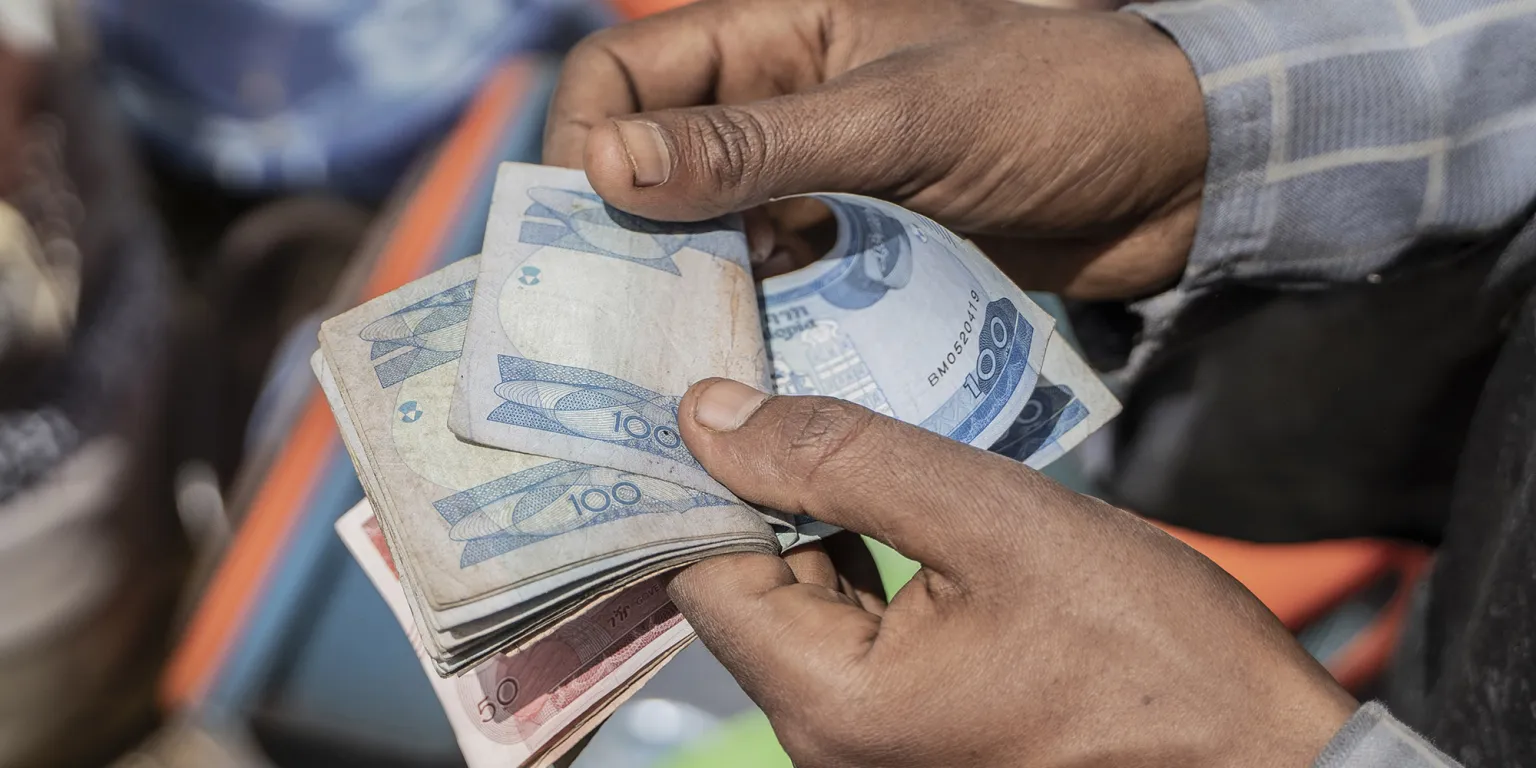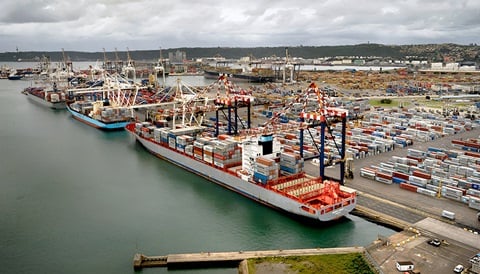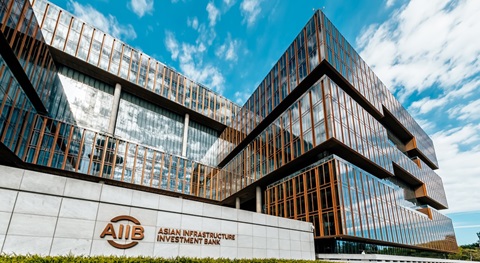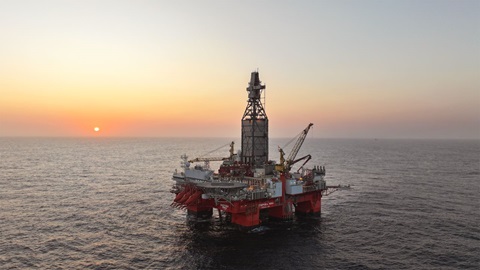Ethiopia to launch stock exchange in 2024
ESX promises new funding source for business while facilitating the privatisation of state-owned enterprises
 Photo credit: Amanuel Sileshi / Bloomberg
Photo credit: Amanuel Sileshi / Bloomberg
In line with ongoing efforts to become more open economy, Ethiopia is expected to launch its inaugural stock exchange, the Ethiopian Securities Exchange (ESX), in mid-2024. This modern, electronic trading platform will cater to equity and fixed-income markets, listing government treasury bills, bonds, and corporate debt instruments. Additionally, it will feature an alternative capital market designed to support smaller businesses.
The ESX is anticipated to create fresh avenues for companies to issue shares and attract funding. It will also serve as a platform for the privatisation of Ethiopia's state-owned enterprises, allowing the country to reduce its dependence on external debt. At its launch, the new bourse is expected to attract listings from at least 50 entities, including banks and insurance companies.
The exchange is designed to function as a for-profit venture, with ownership shared between private sector entities and the Ethiopian government. The government is actively seeking private investors to purchase up to 75% of the ESX's shares. Ethiopian Investment Holdings, the state-controlled sovereign wealth fund, along with its subsidiaries, will retain the remaining 25% shareholding. The ESX has already established a board of directors and appointed Tilahun Esmael Kassahun, formerly of the International Finance Corporation and a key figure in the exchange's development, as its CEO.
Despite its status as East Africa's largest economy, with a GDP of approximately US$120bn and a population exceeding 100m, Ethiopia has historically lacked a stock exchange. This absence stems from the nation's long-held aversion to outsiders. Even after having eschewed Marxism years ago many sectors of the economy remain off limits to foreign investors. Since coming to power in 2018, Ethiopian Prime Minister Abiy Ahmed has embarked on further opening up of the economy. In 2021, it opened the telecommunications sector by awarding a US$850 million mobile network operating license to an international consortium led by Safaricom of Kenya. The arrival of Safaricom ended the monopoly of the state-owned Ethio Telecom and brought down the cost of data and mobile use. Earlier in 2023, Ethiopia also announced plans to issue up to five banking licences to foreign investors within the next five years.
Investor interest in Ethiopia, however, has been tempered by factors like insecurity, inability to service debts and curbs on foreign exchange. Addis Ababa failed to pay US$33 million in interest on 11 Dec becoming the third African country to default in as many years. The government has asked bondholders to extend the maturity period from Jul 2028 through to January 20232 and cut interest rate from 6.62% to 5.5% but they are unwilling to change terms. Ethiopia is seeking to renegotiate its debt service obligations under the G20 Common Framework. These efforts have since been stalled. Meanwhile the risk of yet another civil conflict re-erupting remains a matter of concern for investors. Although a 2022 peace agreement between the government and the Tigray Peoples Liberation Front (TPLF) concluded a two-year civil war in the northern Tigray region, new ethnic conflicts have emerged. There are now fears of a renewed war with Eritrea erupting. Two years of conflict and a halt to economic activity in one of the most productive regions of the country have had a substantial impact on national output. Economic growth declined to a historic low of 3.84% in 2022. Ethiopia received no bids for a new mobile telecommunications licence, a lack of interest primarily linked to concerns over ongoing conflicts in parts of the country. A vibrant capital market would not only enable investors to enter and exit Ethiopia quickly it will also help Addis Ababa raise domestic and portfolio capital for many of its development needs. Addressing Ethiopia's infrastructure deficit necessitates considerable investment. Its 10-year transport infrastructure requirement alone needs US$54bn worth of investment through 2030. A vibrant capital markets with adequate depth could help close that gap. But for now, Ethiopia remains frozen out of international capital markets since the conflict over Tigray began in 2020. Addis Ababa has also been denied direct budget financing by Western donor states. The United States (US) and European Union (EU) have reportedly withheld more than USD 500 million in direct annual financing.
References
‘Ethiopia awards telecom licence to Safaricom-led consortium’, Al Jazeera, 22 May 2021
‘Progress towards Ethiopia’s stock exchange’, African Capital Markets News, 24 November 2022
‘Ethiopia to offer up to five banking licenses to foreign investors’, Reuters, 04 May 2023
‘Ethiopia: New bourse promises to unlock the economy’, Global Finance Magazine, 05 June 2023
‘Ethiopia gears up for launch of first-ever securities exchange’, United Nations Economic Commission for Africa, 06 July 2023
‘Our one collective goal is capital formation’, The Reporter, 01 November 2023
‘Ethiopia’s maiden stock exchange gets founding CEO’, The Reporter, 04 November 2023
‘Ethiopia fails to attract any bids for third telecom license’, Bloomberg, 14 November 2023
‘Ethiopia opens up more sectors as exchange readies for launch’, The East African, 16 November 2023
‘An investor darling is becoming a hard sell: Next Africa’, Bloomberg, 17 November 2023
‘Ethiopia aims to cement financial liberalisation with 2024 stock market launch’, The Africa Report, 29 November 2023
‘World economic outlook database’, International Monetary Fund, Accessed 03 December 2023







